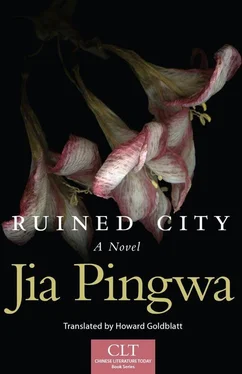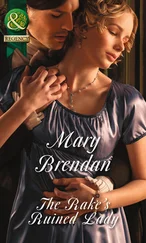“It’s better that you can’t find those. Don’t look up anyone we know, and don’t tell anyone what happened today.”
“Yes. Otherwise, you’d know too much and could lose your ability to speak, even if you didn’t go blind. Unlike me, you are at the peak of your career. So enjoy life.”
“How am I supposed to do that?” Zhuang shook his head.
About an hour later, Xia Jie came home, drenched in sweat, and plopped down on the sofa after briefly greeting Zhuang. Saying she was dead tired, she asked Meng to light her a cigarette, which he did.
“You’ve started smoking?” Zhuang asked.
“I have to enjoy what you men enjoy. What are we eating today, Yunfang? Is lunch ready?”
“Zhidie is here, and we had a lot to talk about, so I didn’t have time to cook. Why don’t you make us some noodles?”
“You’ve been sitting in a cool house all morning and now you ask me to cook? No.”
“Okay. I’ll go buy some noodles.” Meng walked out with a container.
“You must think I’m a tyrant in this house,” Xia said to Zhuang the moment Meng left. “I’ve refused to do anything around the house lately. He’s obsessed with that Master Shao’s Magic Numbers and is getting weird. He never listens to me. In the past, Abbot Zhixiang was like a god to him, and then he went on and on about the nun Huiming. Now he’s found another idol after meeting a doddering old man in the northern suburb. He’s the type who would die without someone to worship.”
Zhuang laughed. “So has he stopped being an advisor to the magic health products factory?”
“He stopped that long ago. Look under the bed, and you’ll find a pile of magic sacks. When he was writing up product information, he said the sacks contain musk, borneol flakes, and tiger penis. I asked him how a factory could get that many tiger penises for all the sacks they make each day. A tiger can have only one, and how many sacks could it fill? Are they raising tigers under beds or catching them on Mount Changbai up north? Aren’t they afraid the police will accuse them of killing nationally protected rare animals?”
Zhuang laughed. When Meng returned with the noodles, he asked what was so funny.
“Don’t tell him,” Xia said to Zhuang. “We’re laughing at laughable people.”
Meng did not press them, and they sat down to eat. After lunch, Meng wanted to go out with Zhuang, so annoying Xia that she ignored them. Meng perked up once they were out of the house. He asked Zhuang to give him a ride to Xiaoyang Village in the northern suburb, where the old man lived. He once again described the mystical old man who had spent years traveling all over China, searching out true masters of divination and ferreting out the decoding system for Master Shao’s Magic Numbers . Meng added that he owed his own access to the secret code to a ditty by the old man, who had in turn learned it from an old woman who specialized in phrenology. Intrigued by Meng’s description of the old man, Zhuang sped toward the north side.
A small building stood at the entrance to Xiaoyang, a medium-sized village. When they arrived, a young couple was standing on the balcony, where the woman was breastfeeding a baby. The man said, “If you don’t want it, Daddy will take it.” He leaned forward and noisily sucked a mouthful. “What a shameless daddy you have,” the woman said to the baby. Then she amused the child with a little ditty: “Twenty-third, offer sacrifices to the kitchen god. Twenty-fourth, sweep the floor. Twenty-fifth, grind beans for tofu. Twenty-sixth, steam the buns. Twenty-seventh, kill the rooster. Twenty-eighth, paste paper-cuts on the window. Twenty-ninth, seal the grain vat. Thirtieth, stew a pig’s feet. On the first day of the new year, kick out your feet . Zhuang could not stop looking at them. “They’re the old man’s son and daughter-in-law,” Meng said. “They’re just having some fun. Don’t stare.”
“I was listening to the nursery tune. The second part is terrific. But why stew pigs’ feet on the thirtieth and kick out your feet on the first?”
“On the thirtieth, you boil water to wash your feet, clip your toenails, and put on new shoes. Then, on the morning of the first, children kowtow to their elders, and they kick out their feet when they do that.”
“That’s wonderful! And it sounded especially good in her Henan accent.”
Meng looked up at the balcony. “Where’s your father?” he asked.
“Inside,” the young man said.
Meng led Zhuang into the yard and went up to a room on the ground floor on the north side, where an old man sat drinking tea. Instead of getting up, he merely moved a bit so that they could sit down. Then, after handing Zhuang a tea-stained mug, he turned to whisper something to Meng. Zhuang was surprised to find the room shrouded in darkness, and noticed that it did not have a single window and that it smelled bad. Thread-bound books littered the old man’s bed and table.
“This is my cousin,” Meng said. “He’s okay, you don’t have to lower your voice.”
“Have a cigarette,” the old man said as he glanced at Zhuang. Not finding any on him, he leaned forward to grope through a pile of bedding, where he found a pack, which he tossed to Zhuang. “I traveled north of the Wei River three times,” he said, still in a soft voice. “The man simply refused to show it to me. On my fourth visit, he said I couldn’t see it because that would be the same as buying it. I said I’d buy it and asked him how much. He said he needed two hundred thousand to build a house. I told him I didn’t have that much, but I could offer forty thousand. ‘Not enough,’ he said, and started haggling. I upped my offer to forty-five thousand. That was all I could come up with. Two days ago I went back in the afternoon, but he had changed his mind. I spent the whole night talking to him. I said, ‘You don’t have the book, so what are you going to do with the twenty-three lines of decoding rhyme?’ He said, ‘You’re right, but you don’t have the rhyme, so your book isn’t even as useful as a traditional dictionary.’ He was right, too, of course, so I offered to give him a photocopy of the book when I had it all decoded. He finally agreed the following morning. I handed over forty-five thousand yuan, and he produced a small pamphlet, wailing and calling himself an unfilial son who gives away a treasure passed down by his ancestors. He cried so hard he doubled over.” The old man brought out a small camphor case, from which he retrieved a four-page handwritten notebook and whispered something to Meng.
“It’s all right,” Meng said. “He’ll give me a ride home. I’ll be back as soon I make some headway.”
“You don’t need to come back. But I might come see you tomorrow afternoon.”
After the two men walked out, Meng asked, “So, what do you think of him?”
“I’m not a fan of people like that. Too secretive.”
“He was guarded against you. I wouldn’t tell him your name, so he ignored you.”
“Now you’re going to lose sight in your other eye,” Zhuang said.
“I can’t really tell if the rhyme is the real thing or if I’ll be able to use it. And if I lose my sight in both eyes, I’m afraid Xia Jie will leave me.”
“I thought you checked her fortune and saw that she’ll only remarry once.”
“She’ll be mean to me even if she does stick around. You’ll have to come see me more often when that happens.”
“Of course. If that’s how she turns out, I’ll deliver you to the nunnery. Hasn’t Huiming always been good to you?”
“Things are different now that she’s the abbess. For funding, I introduced her to Huang Fude, and now she runs to him if she needs something. When she sees me, she says Amita Buddha, all prim and proper, like a true Buddhist adept.”
Читать дальше


![Matthew Vincent - [you] Ruined It for Everyone!](/books/216429/matthew-vincent-you-ruined-it-for-everyone-thumb.webp)









